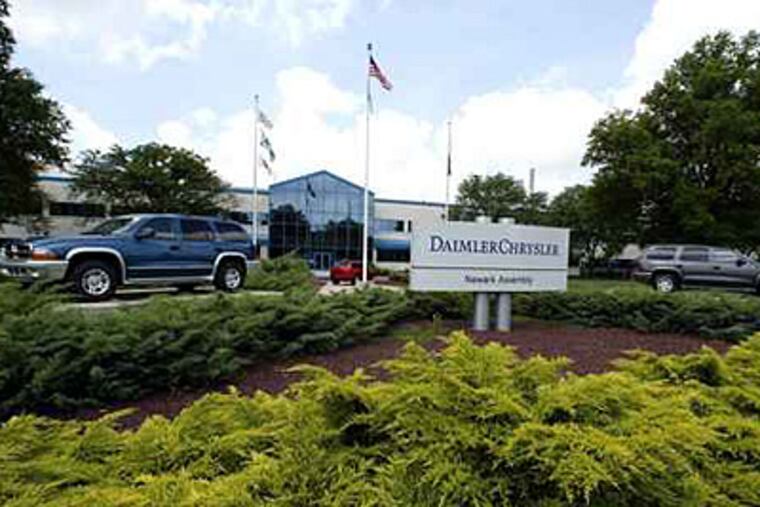U. Delaware planning big expansion
The University of Delaware is planning the largest campus expansion in its history - largely for research - with its intended purchase of an adjacent 272-acre site formerly occupied by Chrysler Corp., which declared bankruptcy earlier this year.

The University of Delaware is planning the largest campus expansion in its history - largely for research - with its intended purchase of an adjacent 272-acre site formerly occupied by Chrysler Corp., which declared bankruptcy earlier this year.
University officials envision building laboratories and other science and research facilities, and also are considering a medical campus in partnership with Thomas Jefferson University in Philadelphia and several Delaware medical institutions.
Imagine adding a campus about the size of the University of Pennsylvania's West Philadelphia core, says an excited Scott Douglass, executive vice president and university treasurer.
That's the extent of the expansion, which is just south of the main campus near the university's sports complex and agricultural lands.
"This is a transformational opportunity for us," Douglass said.
The focus on research is part of President Patrick Harker's vision for the university.
"It's not enough that universities do research. You've got to do research with impact and make a difference in your community and region," Douglass said.
The University of Delaware is a major research institution that spends about $100 million on research projects, which are largely federally funded. It enrolls about 15,000 undergraduates and 4,000 graduate students.
The university plans to boost its research in alternative energy, defense - in cooperation with the U.S. Army - and health, in addition to forming more corporate partnerships, Douglass said.
The 968-acre university has an agreement to purchase the property for $24 million, he said. The agreement has been submitted for approval to the U.S. Bankruptcy Court in New York. Douglass expects proceedings to be completed by the end of November.
But it will take two years to clean up the site, including demolishing the sprawling, now idle, Chrysler assembly plant. The university has agreed to accept liability for any environmental cleanup, Douglass said. It is eligible for up to $1 million in state assistance, according to state environmental officials.
Douglass declined to describe what the cleanup would entail or how much it would cost the university.
The Delaware Department of Natural Resources and Environmental Control also declined to provide an estimate.
Department Secretary Collin O'Mara said the site has groundwater and soil contamination, as well as aboveground and underground storage tanks. Contaminants include chemicals consistent with industrial use, such as lead and arsenic, he said.
"We will be working with the university to evaluate the potential impact," O'Mara said.
The university began trying 18 months ago to negotiate a deal with Chrysler, which closed the plant in December.
"We couldn't come to a resolution on the level of remediation for environmental issues that they'd be required to do," he said.
But the university then was able to negotiate with Capstone, a firm that helps assist organizers and investors in a bankruptcy, he said.
The university's Board of Trustees last spring authorized the purchase of the property at a public meeting.
Douglass had no estimate on how much it would cost the university to develop the property over the years. The plan is for taller structures rather than spread-out building, he said.
Thomas Jefferson University officials said yesterday that they welcomed the opportunity to partner with the school. Christiana Care Health System and Nemours/Alfred I. duPont Hospital for Children also are partnering.
"We are excited by the prospect of the Chrysler site and look forward to working with our Delaware partners in securing a location for a clinical education campus," Thomas Jefferson University said in a statement yesterday.
The university said it expected the campus would include classrooms and a residential facility for up to 150 medical, pharmacy, nursing, and occupational- and physical-therapy students.
The Delaware Institute for Medical Education and Research for years has paid Thomas Jefferson for 30 spots in its medical school for Delaware residents.
"There's a long-standing relationship" between Delaware and Thomas Jefferson, Douglass said.
Chrysler did not return calls for comment yesterday.
The university also is planning a parking facility on the property, and possibly other residential facilities. It also hopes for an expansion of a nearby train station.